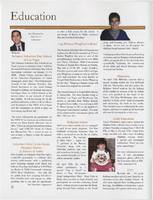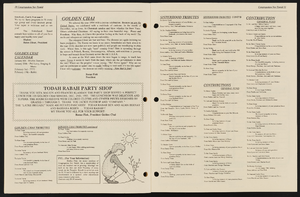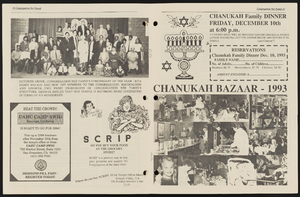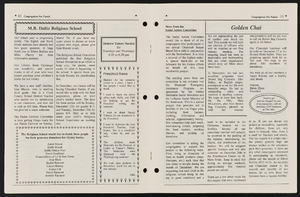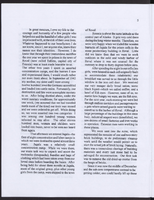Search the Special Collections and Archives Portal
Search Results

Jews Wandering in the Desert: A History of the Jewish Community of Las Vegas by Joel Fleekop, May 1, 2000
Date
2000-05-01
Archival Collection
Description
Joel Fleekop's senior honors thesis from Brandeis University titled: "Jews Wandering in the Desert: A History of the Jewish Community of Las Vegas."
Text
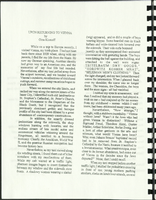
Compilation of writings from the Holocaust Survivors' Group, circa 1998
Date
1988
Archival Collection
Description
Bound compilation of four issues of the Holocaust Survivors' Group essays and poems.
Text
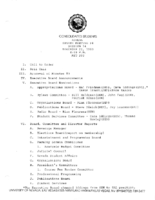
Meeting minutes for Consolidated Student Senate, University of Nevada, Las Vegas, November 22 1983
Date
1983-11-22
Archival Collection
Description
Includes meeting agenda and minutes along with additional information about the memorandum and senate bylaws.
Text

Mabel Hoggard: scrapbook
Date
1947 to 1954
Archival Collection
Description
From the Mabel Hoggard Papers (MS-00565) -- Personal papers file. This scrapbook contains mainly newspaper clippings and greeting cards to Mabel Hoggard from friends and family.
Mixed Content
Pagination
Refine my results
Content Type
Creator or Contributor
Subject
Archival Collection
Digital Project
Resource Type
Year
Material Type
Place
Language
Records Classification

